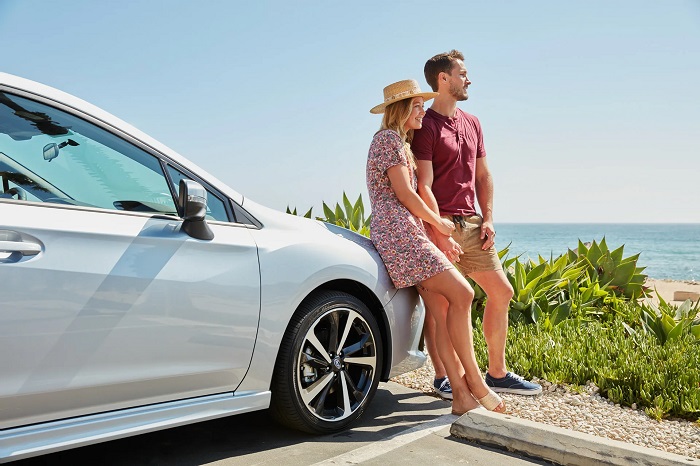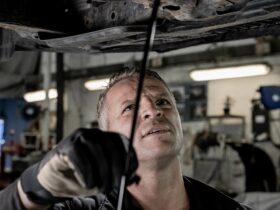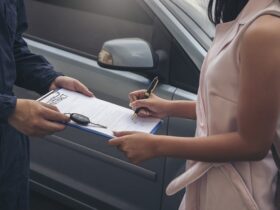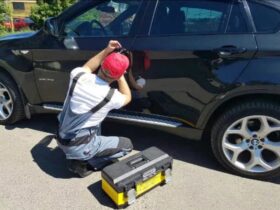When a holiday is planned well, the rental car becomes more than transport. It becomes part of the experience. We see every day how the right vehicle makes trips easier, safer and more relaxed. The wrong choice creates stress, extra costs and wasted time. This guide explains how we recommend tourists choose a rental car that truly fits their plans.
Understand Your Travel Plan Before You Choose The Car
Before looking at car photos, it helps to be clear about the trip itself. We always start with a few simple questions.
- How many people will travel most of the time
- How many suitcases and bags do you carry
- Will you drive mainly in cities or on long highways
- Do you expect mountain roads, unpaved roads or only smooth tarmac
- Do you plan one base or many hotel changes
For a city break with tight streets and paid parking, a compact car is usually the smartest choice. For a family road trip with long distances, a comfortable sedan or SUV with good luggage space works better. When the itinerary includes mountain villages, steep hills or coastal roads, we advise a car with enough power and good brakes rather than the cheapest option on the list.
Choose The Right Car Category Instead Of A Specific Model
Many tourists get disappointed because they expect a specific model. Rental companies confirm a category, not an exact car. We recommend focusing on category and key features.
- Mini and economy cars are ideal for two people with light luggage
- Compact and intermediate cars suit small families and couples with larger bags
- SUVs and crossovers offer more space and a higher driving position
- Vans and people carriers are best for groups and large families
Think about transmission as well. In many countries, manual gearboxes are still common. If you only drive automatic at home, it is safer to book an automatic car even if it costs a little more. This small decision can save a lot of stress in busy traffic or on steep roads.
Check The Total Cost, Not Only The Daily Rate
A low daily price can hide extra costs. When we compare offers for our clients, we always look at the complete cost of the rental, not just the headline rate.
- Base rental price per day
- Airport or location surcharges
- Young or senior driver fees if they apply
- Insurance and protection packages
- One way or cross border fees where relevant
Some partners offer flexible terms. On international aggregators such as Rentcarfy tourists can even find options to rent a car without deposit and without a credit card, with payment by debit card or in cash on arrival. For many travelers this is a key advantage, because it avoids blocking money on a credit card during the holiday.
Understand Insurance And Protection Before You Book
Insurance is one of the most important parts of a rental car contract. Many clients only read the small print when something goes wrong. We recommend checking it in advance.
Most offers include basic collision damage protection and theft protection with an excess. The excess is the maximum amount you pay in case of damage or theft. A high excess means higher risk even if the rental price looks cheap. For peace of mind, many tourists choose full coverage or excess reduction products. These reduce or remove the excess if something happens to the car.
It is also useful to check:
- What happens with damage to windows, mirrors and tires
- How roadside assistance works in case of breakdown
- What to do in case of an accident and which phone numbers to call
Clear instructions and transparent terms give confidence and help avoid conflicts at drop off.
Review Fuel, Mileage And Cross Border Rules
Fuel policy has a direct impact on the final price. We prefer simple and fair rules such as full to full. You pick up the car with a full tank and return it full. This way you only pay for the fuel that you really use.
Other fuel policies can include service fees or different prices per liter. We advise reading the fuel policy in the conditions before confirming the booking.
Mileage limits matter as well. Unlimited kilometers are perfect for flexible road trips. If the offer has a daily limit, it is important to calculate how many kilometers you plan to drive. Extra kilometers can be expensive if you do not plan for them.
For border crossings into other countries or islands, always check the rules in advance. Some suppliers do not allow it at all. Others allow it but charge an extra fee or request special insurance.
Think Ahead About Pick Up And Return
Holiday time is precious. A good pick up plan saves energy on the first and last days of the trip.
- Check whether the pick up point is in the terminal, near the terminal or off site
- Read how the shuttle bus works and where to wait
- Verify opening hours if you arrive late or depart very early
- Confirm the rules for late arrival and flight delays
For drop off, we suggest choosing the same location when possible. One way rentals are practical in some cases, but they usually cost more and can have stricter conditions.
Use Reviews And Ratings As A Trust Signal
Reviews are a valuable source of real experience. When we evaluate partners, we study patterns in feedback, not only single comments. We look for signals such as:
- Waiting time at the counter and vehicle collection process
- Clarity of information about insurance and deposits
- Condition and cleanliness of the cars
- Fairness of damage inspection at return
- Quality of support in case of problems
Regular positive feedback on these points tells us that the supplier respects clients and works with clear procedures. Mixed or negative patterns show where more caution is needed.
Prepare Documents Before You Travel
To avoid stress at the counter, it is helpful to prepare all needed documents in advance.
- Passport or national identity card where accepted
- Driving license that is valid for the full rental period
- International driving permit if the country requires it
- Credit or debit card in the main driver name if required for deposit
- Printed or digital voucher with the booking number
Keeping all documents in one folder and having them ready speeds up the process and reduces waiting time for you and others in the queue.
Inspect The Car Carefully At Pick Up
Even when the car looks new, a short inspection is always a good idea. We encourage clients to walk around the car with a staff member.
- Check and photograph all sides of the car
- Note existing scratches, dents and chips on the agreement
- Look at the wheels, mirrors and glass
- Check that lights, wipers and air conditioning work
- Confirm the fuel level shown in the contract
These simple steps protect both the client and the supplier. At the end of the rental, the car can be checked again with the same care. This makes any discussion about damage much easier to solve.
Build A Short Checklist Before You Click Book
Before final confirmation, we suggest going through a quick checklist.
- Car category matches the number of passengers and luggage
- Transmission type and fuel type are correct for your needs
- Total cost with insurance and fees is clear
- Fuel policy and mileage rules are understood
- Pick up and return locations and hours fit your flights
- Terms about deposits, payment methods and possible rentals without deposit and credit card are acceptable
- Supplier rating and reviews look solid and consistent
With these points checked, the rental car becomes a reliable part of the holiday plan, not a source of surprises.














Leave a Reply